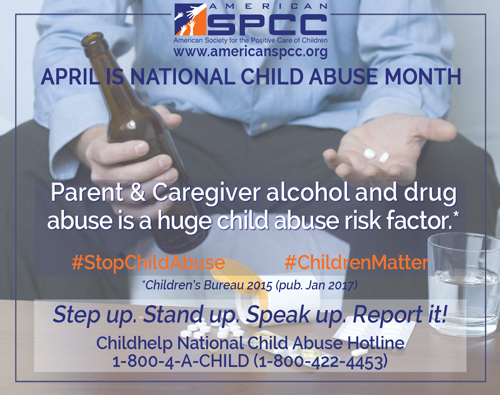Posted on
Children who experience emotional abuse are more likely to struggle with post-traumatic stress and opioid misuse as adults, according to a new study by researchers at the University of Vermont.
Though previous studies have shown there is a relationship between abuse of all kinds and substance misuse, this is the first to specifically connect emotional abuse and opioid use, the researchers said.
“If a person is being physically or sexually abused, it’s easier to put the blame on the person doing the abuse,” said Matthew Price, assistant professor in the Department of Psychological Science at the University of Vermont and the paper’s senior author, in a press release.
“With emotional abuse, the abuser is saying, ‘You are the problem.’ Being called names, being told you’re not good enough, being told no one cares about you undermines your ability to cope with difficult emotions,” he said. “To protect themselves from strong emotions and from trauma cues that can bring on PTSD symptoms, people with this kind of childhood experience frequently adopt a strategy of avoidance, which can include opioid use.”
Children who had been emotionally abused were more likely to engage in risky behavior as teenagers and experience PTSD later, according to the study. The severity of the PTSD was directly related to the severity of the opioid problem.
Lauren Finney, a social worker in Washington, D.C., works with mothers struggling with substance misuse. She sees the relationship between childhood trauma and later drug abuse on a daily basis.
“All the women I work with have experienced some sort of childhood trauma,” she said in an email. “We just expect it to be under there festering, and really such a foundation for so many other problems: mental health, substance use, poverty, lack of education, inability to keep a job, their own parenting problems.”
Statistics for emotional abuse are difficult to establish, but there were approximately 42,000 reported cases of child emotional or psychological abuse in 2014, according to the U.S. Department of Health and Human Services. This accounted for about 6 percent of all reported abuse cases, according to HHS, though emotional abuse also occurs with other types of abuse.
Meanwhile, about 2.1 million people in the U.S. struggled with opioid pain killers in 2014, according to the National Institute on Drug Abuse.
The drugs become a coping mechanism for the feelings of worthlessness and rejection emotional abuse victims feel, Finney said. All of her clients show signs of PTSD and all experienced some form of trauma before their substance abuse began.
“Whenever I get a new client—and these are women who are at risk of their children being removed partially due to substance use—I read their files and think, ‘Oh my goodness, this is terrible. How can I work with someone who abuses their kids?’” Finney said. “But then I meet them and hear their own stories of being abused and neglected when they were a child, and hear their trauma. And they become women who are just finding their own ways to get through their days the best as they know how, often with really little support and a lot of stigma. No one wakes up saying, ‘I want to be an addict. I want to use drugs. I want to harm my kids.’”
The link between PTSD and the abuse of opioid pain killers helps shed light on why current treatment methods for opioid use and PTSD aren’t always effective, Price said in the press release. The two are often treated separately by different specialists, but the study suggests that integrated mental health and substance abuse treatment could be much more effective, he said.
“If a patient has had severe emotional abuse and they have a tendency to act out when they’re feeling upset, and then they turn to opioids to deal with the resulting PTSD, it makes sense to address the emotional component and the drug problems at the same time.”
Finney agreed. “It’s like a ‘chicken or the egg’ situation. How can you treat someone’s substance use if you’re not getting to the root cause of it, which is mental health? And how can you finally get to the core of their mental health if they’re using mind altering substances?”
“To make a true difference, clinicals and treatment must address mental health and substance use together,” she added. “It’s very hard to find programs that do that, and do it well is even harder.”
Researchers used interviews and psychological tests to measure the extent and severity of patients’ abuse, PTSD, and addiction, according to the press release. The study was published in the journal Addictive Behaviors.
Michal Conger
 Michal Conger is a freelance writer whose work has appeared in several outlets including the Washington Examiner, The Washington Times, the Santa Barbara News-Press, and Verily Magazine. She has appeared on Fox News with Neal Cavuto and Greta Van Susteren, as well as several radio news shows. As an investigative reporter she has covered government contracts and spending, environmental regulations, and politics. She also volunteers with the Northern Virginia Human Trafficking Initiative, which provides direct services to women and girls recovered from sex trafficking in Northern Virginia.
Michal Conger is a freelance writer whose work has appeared in several outlets including the Washington Examiner, The Washington Times, the Santa Barbara News-Press, and Verily Magazine. She has appeared on Fox News with Neal Cavuto and Greta Van Susteren, as well as several radio news shows. As an investigative reporter she has covered government contracts and spending, environmental regulations, and politics. She also volunteers with the Northern Virginia Human Trafficking Initiative, which provides direct services to women and girls recovered from sex trafficking in Northern Virginia.
The Childhelp National Child Abuse Hotline 1-800-4-A-CHILD (1-800-422-4453) is dedicated to the prevention of child abuse.

